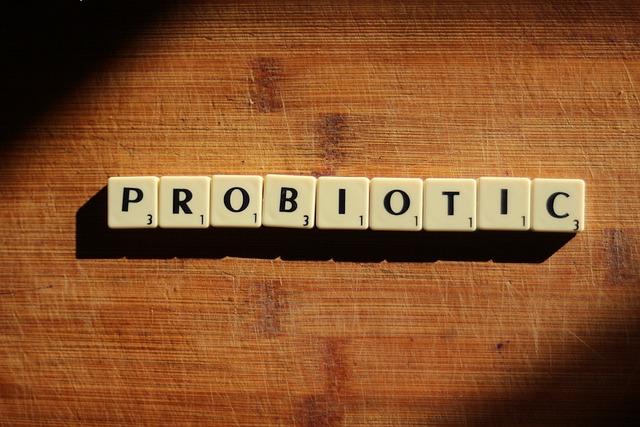In the bustling world of wellness, where kale smoothies and yoga retreats often steal the spotlight, a tiny yet mighty contender has been quietly making waves: probiotics. These microscopic organisms, heralded as the gatekeepers of gut health, have sparked a global conversation about the intricate dance between our bodies and the bacteria within. As we delve into the realm of probiotics, a pressing question emerges from the fray: should these live cultures become a staple in our daily regimen? In this exploration, we unravel the science, sift through the myths, and navigate the nuanced terrain of probiotics to help you make an informed decision about their place in your everyday life. Join us as we embark on this journey through the unseen world of our microbiome, where health and harmony may just be a capsule away.
Understanding the Role of Probiotics in Digestive Health
Probiotics, often referred to as “good bacteria,” play a crucial role in maintaining a balanced gut microbiome, which is essential for optimal digestive health. These living microorganisms are believed to enhance the intestinal barrier function, compete with harmful pathogens, and stimulate the body’s immune response. Incorporating probiotics into your daily routine can potentially offer benefits such as reducing the symptoms of irritable bowel syndrome (IBS), preventing diarrhea caused by antibiotics, and alleviating constipation. However, their efficacy can vary depending on the strain and the individual’s unique digestive system.
- Strain Specificity: Different strains of probiotics can have distinct effects on the body. For example, Lactobacillus and Bifidobacterium are commonly used to support digestive health.
- Daily Consumption: Regular intake might help maintain a stable gut environment, but it’s crucial to choose a product with a viable count of live organisms.
- Potential Side Effects: Some people might experience bloating or gas initially, which usually subsides as the body adjusts.
While many people report positive effects from daily probiotic consumption, it is important to consult with a healthcare professional to determine the best approach for your specific health needs and to ensure it aligns with any existing treatments or conditions.

Evaluating the Scientific Evidence Behind Daily Probiotic Use
When considering the integration of probiotics into your daily routine, it is essential to delve into the scientific research that supports their use. Probiotics, often termed as “good bacteria,” have been studied for their potential to enhance gut health, boost the immune system, and even improve mental well-being. Clinical trials and peer-reviewed studies suggest that certain strains, such as Lactobacillus and Bifidobacterium, may offer health benefits when consumed consistently. However, it’s crucial to recognize that the efficacy of probiotics can vary significantly depending on the specific strain and individual health conditions.
To make an informed decision about daily probiotic use, consider the following points:
- Strain Specificity: Different strains have distinct effects. Not all probiotics are created equal.
- Dosage Matters: The number of colony-forming units (CFUs) can influence the effectiveness.
- Health Goals: Align probiotic choice with personal health objectives, such as digestive support or immunity boost.
- Scientific Backing: Look for products backed by credible research and clinical evidence.
While the promise of probiotics is compelling, ongoing research continues to uncover the nuances of their benefits and limitations. As science progresses, staying informed will help ensure that you harness the potential of probiotics effectively and safely.
Balancing Benefits and Risks: Is a Daily Probiotic Right for You
Deciding whether to incorporate a daily probiotic into your routine involves weighing the potential health advantages against any possible downsides. On one hand, probiotics are renowned for their ability to enhance gut health, bolster the immune system, and even improve mental well-being. Regular intake may help maintain a balanced gut microbiome, which is crucial for optimal digestion and nutrient absorption. For individuals dealing with issues like irritable bowel syndrome or frequent infections, probiotics might offer a significant improvement in quality of life.
- Digestive Health: Supports gut flora and aids digestion.
- Immune Support: Potentially reduces the frequency of infections.
- Mental Well-being: Emerging research suggests a link between gut health and mood.
However, it’s important to consider the risks and limitations. Some people may experience mild side effects like bloating or an upset stomach, particularly when first starting probiotics. Moreover, the benefits can vary widely depending on the strain and individual health conditions. It’s crucial to consult with a healthcare provider to tailor probiotic use to your specific needs and to ensure they won’t interfere with any existing treatments or conditions. While probiotics can be a valuable addition to a healthy lifestyle, they aren’t a one-size-fits-all solution.
- Possible Side Effects: Bloating, gas, or digestive discomfort.
- Strain Specificity: Benefits can differ between probiotic strains.
- Individual Variability: Effects can vary based on personal health factors.

Expert Recommendations on Incorporating Probiotics into Your Routine
Integrating probiotics into your daily routine can offer a multitude of health benefits, but it’s essential to do so thoughtfully. Experts suggest starting with a small dosage to observe how your body reacts. It’s crucial to choose a high-quality supplement with a variety of strains for maximum effectiveness. Consulting with a healthcare provider before starting any new supplement regimen is highly recommended, especially for those with underlying health conditions.
- Choose a product with multiple strains: Different strains offer different benefits.
- Pay attention to storage instructions: Some probiotics require refrigeration to maintain their potency.
- Be patient: It may take several weeks to notice the benefits.
Incorporating probiotics through natural food sources is another effective approach. Foods like yogurt, kefir, and fermented vegetables not only provide beneficial bacteria but also offer additional nutrients. Balance is key—ensure that your diet supports probiotic growth by including plenty of fiber-rich foods that act as prebiotics, feeding the good bacteria in your gut.
The Way Forward
As we close the chapter on our exploration of daily probiotics, it’s clear that the decision to embrace these microscopic companions is as personal as it is scientific. Whether you find yourself swayed by the chorus of gut-friendly benefits or remain a skeptic in the face of ongoing research, the choice ultimately rests in your hands—and your gut. Like any journey towards wellness, it requires a thoughtful balance of curiosity, caution, and consultation with healthcare experts. So, as you ponder the role of probiotics in your daily routine, remember that every step you take is a step toward understanding your unique body and its needs. Here’s to a path paved with informed decisions and a future where health is harmonized from the inside out.


































